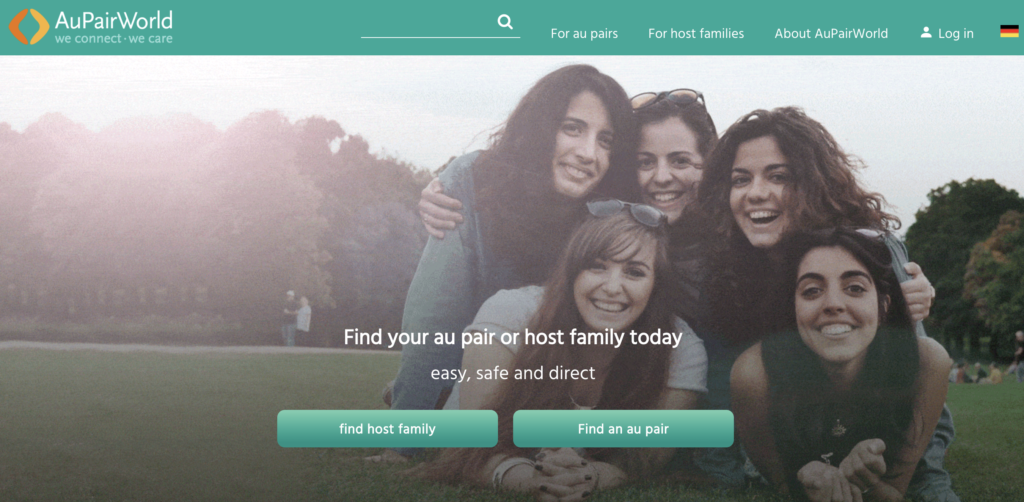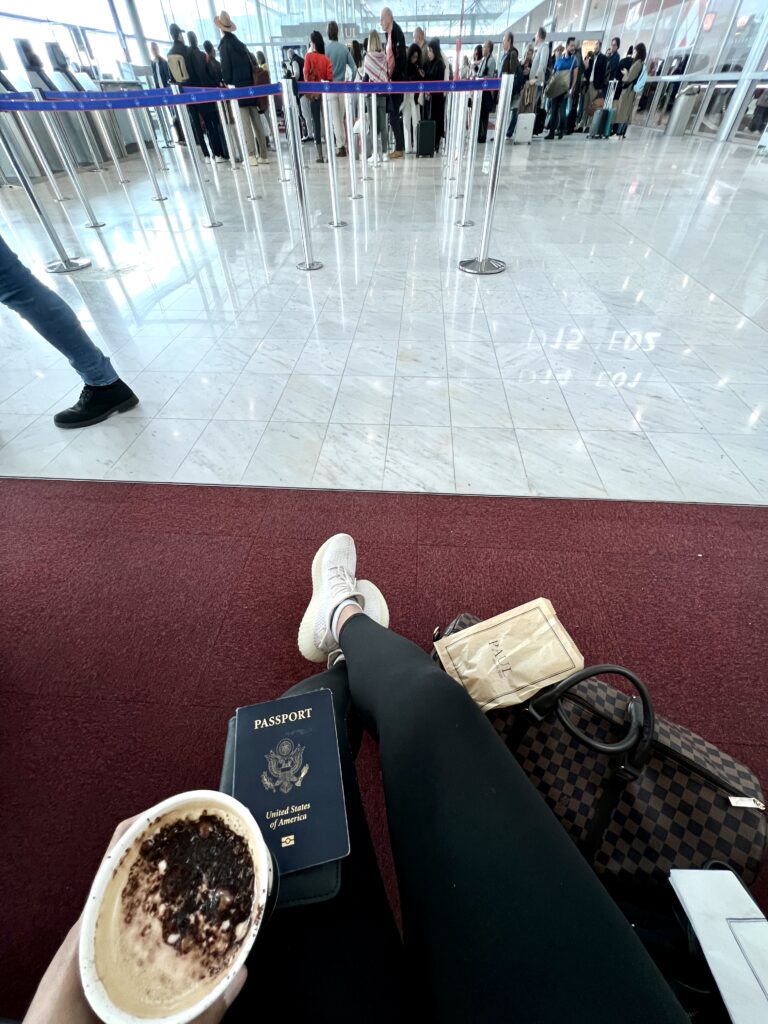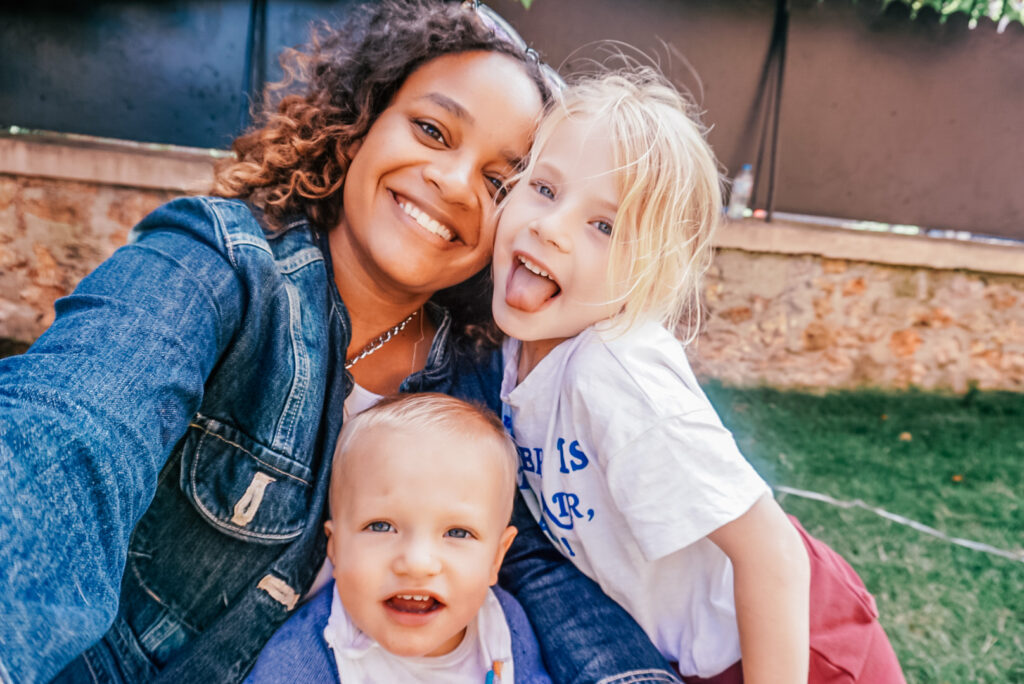Deciding to move to a foreign country to become an au pair in France in 2019 was one of the best experiences of my life.

It has allowed me to now be on the road to being eligible to apply for French citizenship, obtain a Master’s degree completely free, and make a load of memories and close friends in a new country. I highly recommend anyone wanting to travel for cheap to consider becoming an au pair.
I went through the entire journey, from finding a host family, to obtaining my visa, and finally arriving in Paris. It can be quite overwhelming, but I’m writing this article to help those who are interested in becoming an au pair in France, particularly those coming from the United States.
The process may seem daunting, but with some patience and organization, you can successfully navigate through the necessary steps. There are important decisions to make, such as choosing between using a website or an agency, and determining your preferences, like where and when you want to go.
In this article, we’ll take a step-by-step look at exactly what to do to become an au pair in France and start your journey abroad.
Key Takeaways
- The process to become an au pair in France requires patience and organization, but can lead to a rewarding experience.
- Start by choosing between using a website or an agency, and determine your preferences in terms of location and timing.
- Take time to research families, sign contracts, and obtain the necessary documents for your visa application.
Prefer video? Check out my YouTube video on this topic here 👇
In this post, you'll find...
1. Deciding Between Using A Website or An Agency
When I began my journey of becoming an au pair, the first hurdle I encountered was deciding whether to find a family through a website or an agency.
There are two main routes to becoming an au pair: using a website to find a family on your own, or going through an agency.
Websites are generally free, but require more work in terms of finding and contacting families and handling your visa process yourself.
If you go through an agency, there are some fees you’ll have to pay, but it offers more assistance in matching you with a suitable family, guiding you towards acquiring the necessary documents, and providing support throughout the process.
Regardless of your choice, it’s important to weigh the advantages and disadvantages of each option before making a decision.
In my experience, I opted for using the website Aupairworld, as it is significantly cheaper and allowed me independence and autonomy in choosing my host family.

When you’re focused on your preferences like country, area, number of children you’d like to care for, duration of stay, and other criteria, websites offer a vast number of potential families. In contrast, agencies generally streamline the process with their curated database of families.
The process of choosing between a website or an agency depends on your personal preferences, objectives, and budget. It’s essential to ensure that you thoroughly understand the benefits and challenges associated with each option to make the right decision for you.
2. Determining Preferences
Before starting the au pair journey and finding a family, it’s essential to determine your preferences.
You’ll want to map out your must-haves when it comes to your au pair year, and decide what you want and don’t want, before you start looking for families.
Some factors to consider include:
- The country you want to go to
- The location within that country (big city, small town, mountains, beach, etc)
- The number of children you’re comfortable taking care of
- How long you want to stay
- When you can start
Knowing these preferences allows you to narrow down potential families to match with. Once you have your preferences sorted out, you can start browsing for families and reaching out to those that match your criteria.
3. Chatting with Families
Once I had all my parameters decided, such as where I wanted to go, the number of kids I wanted to take care of, and how long I wanted to stay, I started looking for families and reaching out to them. I sent messages to potential families that matched my criteria.
Pro tip: It’s essential not to get discouraged if a family doesn’t respond immediately or declines your application.
There are plenty of families to choose from, and it’s crucial to be patient and trust that the right family will come along. The process of finding the perfect host family can be lengthy, but it’s essential to take your time and ensure you find the best match possible.
As I began chatting with families, I started narrowing down the ones I liked the most.
This is when I had Skype conversations to get a feel for each family and ask essential questions. Sometimes, it’s necessary to have multiple Skype meetings if there are many potential families to choose from. These conversations helped me understand each family’s expectations and allowed me to select the best one for my au pair experience.
I made a list of the most important questions to ask during the first interview, check that out next to set yourself up for success!
4. Narrowing Down Choices
Once I began chatting with potential host families, it was essential to narrow down the choices to find the best match for me.
This process involved having Skype conversations with the families to get a feel for their personalities, lifestyles, and expectations. In some cases, multiple Skype conversations were necessary to choose between several great options.
During these conversations, I made sure to ask several crucial questions to avoid any misunderstandings when arriving at the host family’s home. Some of these questions included their preferred daily schedules, the number of kids they have, and their expectations of me as an au pair.
Check out my YouTube video on the most important questions to ask your potential au pair family 👇
Having a clear understanding of the host family’s expectations and requirements was critical in making an informed decision. At this point in the process, being patient and not rushing into making decisions was crucial.
I can’t stress enough the importance of taking the time to properly evaluate all potential host families and make the best choice possible for my experience as an au pair in France!
5. Signing the Au Pair Contract
Once I found the perfect family for me, it was time to sign the au pair contract!
This was a very exciting time, as we had discussed our expectations and were ready to make things official. The contract detailed what both parties expected from each other and had to be signed by both me and my host family. You can find a sample contract on aupairworld.com or have your host family draft one up for you to sign.
After we both signed the contract, I had to print out and sign the OFII (Office Français de l’Immigration et de l’Intégration) agreement from the French government, ensuring that both parties are clear on their responsibilities and expectations. This document came from the French government and served as a more official version of the au pair agreement.
The document contained information about my host family’s responsibilities, such as providing me with accommodation, a specified amount of pocket money every month, health insurance, and ensuring that they follow the guidelines on treating me fairly. This form has to be sent to the French government before you can start your au pair year in France.
6. Making Visa Appointment
With the signed contract in hand, it was time to make my visa appointment!
I knew I had to make the appointment as soon as possible, as there might be a waiting period. In my case, the soonest appointment I could get was a month out. I’d recommend booking your visa appointment as soon as you have a signed contract with a family to minimize your waiting time.
Be prepared to pay for your visa when you make the appointment!
I had to pay the visa fee at the time that I booked my visa appointment online. The fee was around $110 USD.
Another thing to note is that the visa appointment needs to be scheduled at a French consulate. There are only around 12 consulates in the US that process visas, so you might have to travel out of state. I was living in Austin, Texas at the time of my application, so I had to drive two hours to Houston to go to the consulate.
Also, if you don’t have a passport, you will need this before you make your visa appointment. I would recommend getting your passport before you even start looking for families or in the beginning, even if you don’t have a family yet.
Getting your passport procedure started takes about six to eight weeks, and you don’t want that to hold up your process. You must have your passport back in hand before you can get your visa!
7. Collecting Necessary Documents
France is a country that loves a paper trail. It’s one of the things that annoy me most about living in this country. But with that said, they are very meticulous about the information that they require when you request a visa.
You will need a ton of documents for your visa appointment, including:
- A letter of motivation written in French: This letter should outline your reasons for wanting to come to France, your plans upon arrival, and what motivates you to be in the country.
- Copy of your most recent transcripts and diploma: These must all be translated into French. For me, I included a copy of my college degree, as well as my transcript.
- Copy of your driver’s license
- Two visa photos with specific size parameters: It’s important to note that these photos are not the same size as passport photos, so make sure to double-check the specific size requirements.
- Copy of your signed OFII agreement that comes from the French government
- Copy of your au pair agreement
- Copy of the proof of address from your host family: As a precautionary measure, also attach a copy of your host family’s proof of address, such as a utility bill, and copies of both host parents’ passports.
- Copy of your bank statement to show them that you have enough funds to sustain yourself: This is crucial, as it demonstrates your financial security while living abroad. I’d recommend having no less than $3,000 USD saved in your account before going to your visa appointment.
Throughout my experience, I found collecting these documents to be a time-consuming yet necessary part of the process. But by having all your documents ready and well-organized, you’re one step closer to your Au Pair journey in France.
Remember to double-check the steps and the documents needed for your visa appointment to avoid any potential delays and ensure you have everything required for a smooth process.
8. Collect Your Visa & Book Your Flight!
Once I had all the documents ready, it was time to go to my visa appointment. I had to present all the required documents such as the letter of motivation, transcripts, passport photos, OFI agreement, au pair agreement, and proof of address from my host family, to name a few.
They asked me a few questions, took my fingerprints and my documents and sent me on my way. They told me that the process would take 4-6 weeks to review and my passport (with my visa inside) would be sent back to me by mail if it was approved.
And about 4 weeks later, I received my passport back in the mail with my shiny new France visa inside.

With the visa in hand, I could now book my flight to France! Before booking, make sure to coordinate with your host family about when they expect you to arrive in the country. This will help you choose the best date and time for your flight, ensuring a smooth transition into your new role as an au pair.
Keep in mind that flight tickets can be pricey, so budget accordingly and book well in advance to secure the best deals on flights!
Another crucial factor to consider is the amount of luggage you’re packing for your stay in France.
I was an au pair for a 10-month period, which meant I needed to bring enough clothes and personal items to last throughout my stay. Be strategic with your packing and consider the climate in your destination, the types of activities you’ll be participating in, and the cultural norms of the country.
On the day of departure, double-check that you have your passport, visa, and any other necessary travel documentation. Arrive at the airport with plenty of time to spare to avoid any last-minute issues.
Once onboard, it’s time for the exciting adventure to begin as an au pair in France!
Thanks for reading!

